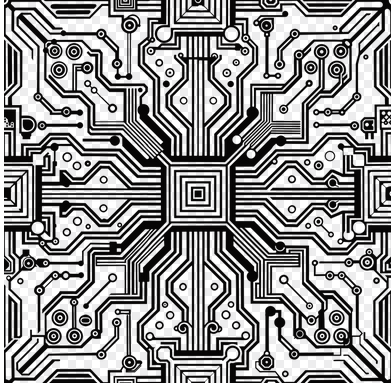Huawei Technologies is set to begin mass shipments of its advanced 910C artificial intelligence (AI) chip to customers in China as soon as next month, according to an unofficial media report. Some shipments have already been undertaken, according to sources familiar with the matter. The development comes at a critical time for Chinese AI firms pursuing home-grown alternatives to the H20, Nvidia’s flagship AI chip that had previously been allowed for free sale into the China market. Huawei launches at an opportune moment for the AI industry in China.
Even Nvidia’s Restrictions Work Out Well for China AI
The widespread use of Huawei’s 910C GPU is aligned with this recent change by the United States administration in terms of export regulations. As a result, an export license is now needed for the sale of Nvidia’s H20 chip to China under these regulations. The change has pushed Chinese AI firms to double efforts to find alternatives made in China, and Huawei’s 910C will could be key part of AI tech stack in China. Huawei’s AI capabilities are growing significant for China on both days.
China’s Looks Beyond Nvidia: House Architectural Development of Huawei’s AI-Directed GPU
The changes to AI chip design by Huawei’s 910C graphics processing unit (GPU) is called as an architectural evolution, but it does not change the equipment of AI chip, according to knowledgeable sources about the design. By using advanced integration techniques to pair two 910B processors in a single package, it achieves performance like Nvidia’s H100 chip. This design allegedly generates 2x the compute and memory in the same silicon as the 910B while also delivering incremental advancements, such as enhanced support for a wider range of AI workload data domestically within China. Huawei of late has developed some real expertise in AI.
US Export Restrictions on AI chips by Nvidia and how it will impact China tech upgrades
The United States has taken steps that are intended to curtail Chinese technological development, especially in military–adjacent sectors. Such steps include reducing the number of advanced AI products, such as Nvidia’s critical B200 chip, available to China. US authorities, for example, banned the sale of the H100 chip - before its 2022 official debut. Thus, China will need to eager companies like Huawei for its AI instead of Nvidia.
Huawei, Chinese Startups Begin Taking Aim at Nvidia’s AI Market Share in China
Huawei and rising Chinese GPU start-ups Moore Threads and Iluvatar CoreX have also found a with Nvidia under the AI walls— and are competing in a now-walled off garden Nvidia co-owns in China. This chance for Huawei and its native AI chip developers is now projected to grow further due to fresh export curbs on Nvidia’s H20. Paul Triolo, partner at Albright Stonebridge Group, indicates that Huawei’s Ascend 910C GPU will probably be the go-to hardware for both Chinese AI model development and inference capacity (in China) that will displace Nvidia.
Huawei’s AI Chip Moving in China, Moving Away from Nvidia’s Production and Supply Chain Considerations
Huawei reportedly handed out the 910C samples to some high-tech companies at the end of last year and began taking orders within the country as well. Reports have not definitively identified which specific companies are the primary production companies for the 910C. But it has been reported that China’s SMIC produces some of the major components of the GPUs via its N+2 7nm process tech but its chip yield rates are said to be low. Also, a few of Huawei’s 910C GPUs apparently feature TSMC-made semis for China-affiliated Sophgo. Work done by TSMC for Sophgo has been under investigation by the US Commerce Department due to a chip by the latter being found in found to be in a 910B processor. At the same time, TSMC said that it followed the regulatory requirements and had not shipped to Huawei since mid-September 2020. Huawei had again stressed that it never used any Sophgo chips made on TSMC. This underscores China’s attempts to create its own less Nvidia dependent AI supply chain.
Other Key Insights
Huawei Technologies (Chinese: 華為技術, pinyin: Huáwèi Jìshù) is a Chinese multinational technology corporation. It does business in areas such as telecommunications equipment, consumer electronics, and the AI (artificial intelligence). The trial showcases its Ascend series of AI chips that forms a part of its overall strategy to strengthen its technology arm on AI sector in China as an alternative to Nvidia. Huawei is a major player in the Chinese AI push.
Nvidia Corporation is an American multinational technology company that is primarily known as a manufacturer of GPUs (Graphics Processing Units). From AI to gaming and professional visualization, most applications rely on NVIDIA GPUs. Until now, Nvidia has been one of the main suppliers of AI chips to China.
AI chips, including GPUs, are special processors that are meant to expedite the calculations needed to do AI and machine learning workloads. These chips are essential for AI tech growth, and China is turning to companies like Huawei for this as they struggle to keep up with the ever-increasing demand for performance and availability. Priority has been given to the AI development in China.
Export controls (for good reason), are regulations enforced by a government or governing body to control the export or transfer of specific commodities, software, or technology to foreign nations or foreign entities. Especially, this kind of controls from USA are affecting the movement of Nvidia’s Advanced and AI Chips to China and helping Huawei. These AI export controls are being adjusted by China.
SMIC — Semiconductor Manufacturing International Corporation is a semiconductor foundry owned by the Chinese state. As a competitor of Nvidia’s supply chain, it is currently one of the largest chip makers in China and also has a part in Huawei’s production of AI chips. China supports the growth of AI through semiconductors.
Taiwan Semiconductor Manufacturing Company (TSMC) is a multinational contract chip manufacturing company from Taiwan. Taiwan Semiconductor Manufacturing Company (TSMC) is the largest independent semiconductor foundry in the world. Nvidia’s previous engagement with Huawei on AI chips and Sophgo has drawn close scrutiny of US regulations targeting limiting access in China to advanced AI technology, a market that Nvidia may want to address.
Sophgo is a Chinese AI chip and solution design company This has raised eyebrows over the US export control regime and has also affected China’s access to some of the technologies developed by businesses farm like Nvidia. There are a lot of companies that design AI chips in China.
7nm Process technology refers to a 7 nanometer (7nm) node which is a specific generation of semiconductor technology with transistors of gate length roughly 7 nm. Chipmakers can typically fit more transistors on a chip at smaller process nodes, which translates to faster, more power-efficient AI chips like Huawei’s as China tries to make up speed to Nvidia.
Chip yield, commonly used in the field of semiconductor manufacturing, indicates the percentage of produced chips that are usable with the required specifications. The yield rate at Chinese manufacturers such as SMIC are low, putting a damp on AI chips supplies to China while affecting its aspiration of reducing dependency on Nvidia.
Originally, graphics processing units (GPUs) were created for boosting graphics rendering, but they have become vital for several AI workloads over the years since they enable parallel processing. Nvidia and Huawei develop high performance GPU for AI.






